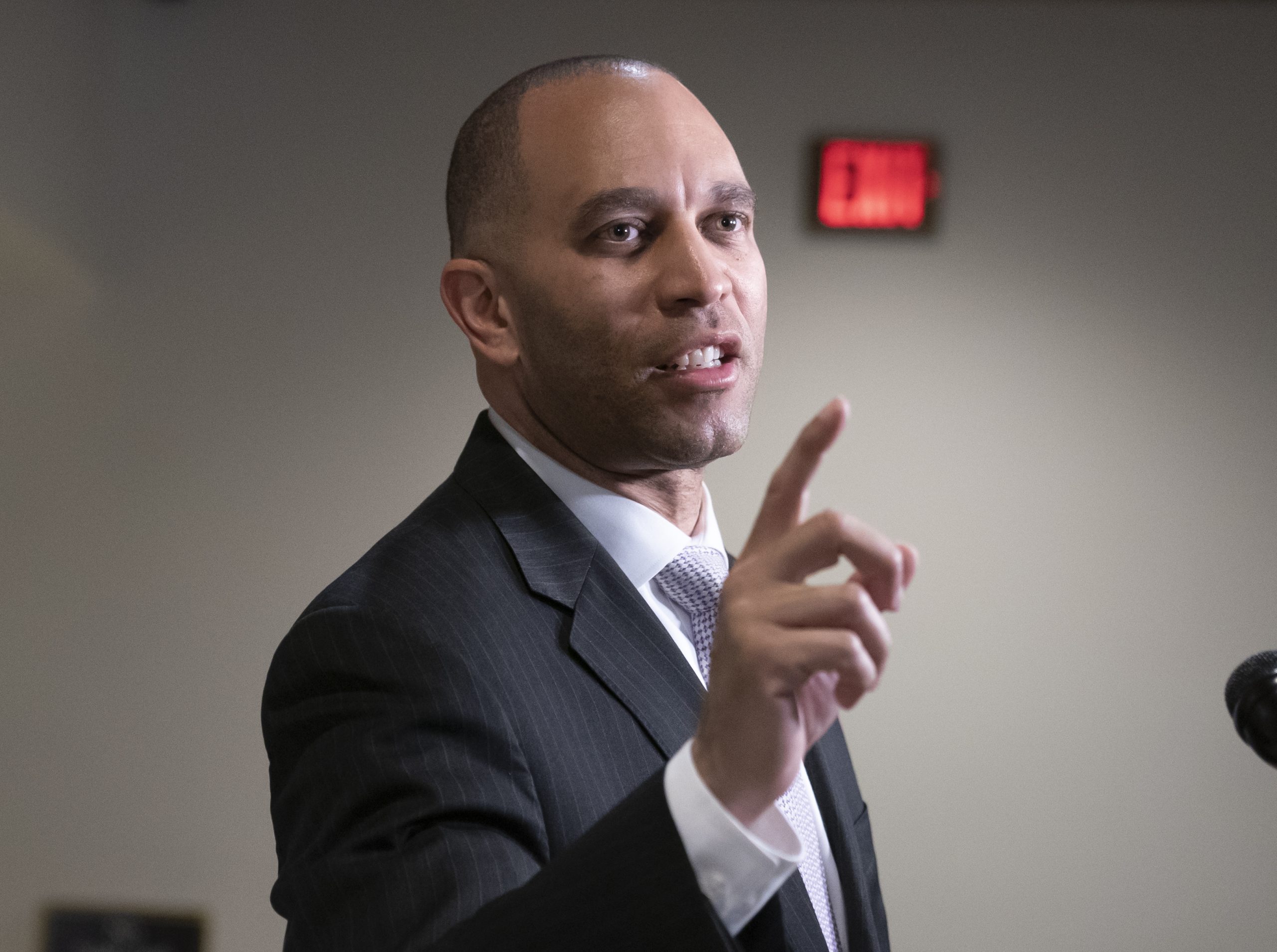House Democratic Leader Hakeem Jeffries appeared on Morning Joe in October 2025 to discuss a critical issue in American healthcare: the impending expiration of the Affordable Care Act (ACA) tax credits. His appearance highlighted Democrats’ efforts to extend these subsidies, the potential consequences if they lapse, and the broader challenges facing the healthcare system in the United States. Jeffries’ remarks centered on ensuring access to affordable care for millions of Americans and addressing Republican policy choices that he argues exacerbate systemic risks in the healthcare landscape.
The Core Issue: ACA Tax Credits
At the heart of Jeffries’ discussion is the ACA’s premium tax credits, which provide financial assistance to eligible Americans who purchase health insurance through the ACA marketplaces. These credits are designed to make coverage affordable for low- and middle-income families. Jeffries emphasized that if these credits expire, the cost of premiums for millions of Americans could rise sharply, placing significant financial strain on households that rely on them to obtain health insurance.
During the interview, Jeffries stressed that these credits are vital for working- and middle-class families. According to his public statements, the majority of those who benefit from the ACA tax credits earn less than $63,000 per year, illustrating that these subsidies are primarily aimed at helping those who are most vulnerable to rising healthcare costs. Jeffries argued that without an extension, families who currently pay affordable premiums could face dramatic increases, potentially forcing them to make difficult choices about their healthcare or even forego insurance altogether.
The Republican Context
Jeffries also framed the debate within the broader context of Republican actions in Congress. He noted that Republicans have repeatedly attempted to repeal or undermine the ACA since its passage in 2010. While Republicans have emphasized reducing government spending and limiting federal involvement in healthcare, Jeffries argued that their actions risk creating what he described as a healthcare crisis. Specifically, he highlighted the fact that Republican-led legislation has involved significant cuts to Medicaid, which, in his view, could threaten the stability of hospitals, particularly rural and community-based healthcare providers.
Jeffries’ concern about Medicaid cuts is grounded in the reality that these programs serve millions of low-income Americans. Reductions in funding could make it difficult for hospitals and clinics to continue providing essential services, especially in areas where alternatives are limited. While some of the political discourse around these cuts is contested, the basic fact that Medicaid is a key component of the U.S. healthcare system and that funding changes can have real effects is undisputed.
The Timing: Open Enrollment and Urgency
Another element Jeffries highlighted is the timing of the expiring tax credits in relation to the ACA open enrollment period. Open enrollment, which begins in early November each year, allows individuals to sign up for or adjust their ACA marketplace plans. Jeffries warned that uncertainty around the continuation of tax credits could leave millions of Americans unsure of their coverage options just as the enrollment window opens. According to his statements, such uncertainty could result in delayed enrollment, lapses in coverage, or financial hardship for families trying to plan for the year ahead.
Jeffries argued that a short-term extension of the tax credits would not provide sufficient stability. Instead, he advocated for a longer-term solution that would offer certainty for families and ensure that healthcare remains accessible and affordable. He emphasized that the goal is not merely to maintain current benefits temporarily but to provide a predictable framework that allows Americans to plan for their healthcare needs without fear of sudden increases in premiums.
Who Benefits from the Credits
In his public statements, Jeffries repeatedly stressed the profile of those benefiting from ACA tax credits. He pointed out that these subsidies primarily serve Americans in the lower- and middle-income brackets. By providing targeted assistance to families who might otherwise struggle to afford coverage, the ACA tax credits help reduce the risk of medical debt and improve access to preventive care, which can ultimately reduce long-term healthcare costs. Jeffries’ point was that these credits are a practical mechanism to ensure that healthcare coverage is attainable for the population segment that is most vulnerable to financial strain.
Jeffries also highlighted that the expiration of these credits would disproportionately affect families who are already managing tight household budgets. He gave examples of how a married couple earning a moderate income could see their annual premiums triple if the credits were allowed to lapse. This scenario underscores the tangible impact of policy decisions on everyday Americans and illustrates why Democrats have made extending these credits a legislative priority.
Legislative Actions and Proposals
In response to the impending expiration of ACA tax credits, Jeffries and other House Democrats have introduced legislation designed to extend the subsidies for a multi-year period. This approach is intended to provide certainty to families and stabilize the marketplace. Jeffries argued that a one-year extension would not be sufficient and that a longer-term plan is necessary to protect Americans from unexpected cost increases. By advocating for a multi-year solution, he seeks to create a framework in which families can confidently plan for healthcare expenses and insurers can maintain stable premiums.
Jeffries’ proposals are consistent with a broader Democratic strategy of defending the ACA while seeking incremental improvements. By ensuring the continuation of tax credits, Democrats aim to uphold access to coverage while addressing potential gaps that could arise from Republican policy decisions or funding changes.
Addressing Criticisms and Political Debate
Jeffries acknowledged the political challenges inherent in this debate. Republicans argue that the ACA itself is flawed and that government subsidies create inefficiencies in the healthcare market. Jeffries countered that while the system is not perfect, abandoning tax credits abruptly would create unnecessary hardship for millions of Americans. He emphasized that the responsibility of Congress is to ensure stability and predictability in healthcare, particularly for those who depend on federal support to maintain coverage.
Jeffries also stressed that the issue is not partisan finger-pointing but a practical matter of protecting Americans’ access to healthcare. While the political debate is contentious, the facts regarding the expiration of ACA tax credits and their importance to working- and middle-class families are clear and undisputed. By framing the discussion around the real-world implications of policy decisions, Jeffries sought to shift the focus from partisan rhetoric to the tangible effects on everyday people.
Broader Implications for Healthcare
Beyond the immediate question of ACA tax credits, Jeffries’ comments highlight broader concerns about healthcare policy in the United States. The debate underscores the tension between federal intervention to make coverage affordable and efforts to reduce government spending. It also brings attention to systemic challenges, such as the cost of insurance premiums, access to care in rural areas, and the sustainability of Medicaid programs. While opinions differ on how best to address these issues, the importance of maintaining access to coverage for vulnerable populations is widely recognized.
Jeffries’ advocacy for extending ACA tax credits reflects a focus on the practical outcomes of policy rather than abstract ideological positions. By emphasizing affordability, access, and stability, he frames the debate in terms of measurable benefits for the American public.
Conclusion
Hakeem Jeffries’ appearance on Morning Joe in October 2025 provided a fact-based, clear articulation of the stakes involved in the ACA tax credit debate. His central argument is that extending these credits is essential to ensuring that millions of Americans can maintain affordable health insurance. He warned that without legislative action, families could face significant financial strain, and healthcare providers could be challenged in their ability to operate effectively.
Jeffries positioned Democrats as advocating for predictable, stable policy solutions in the face of partisan disagreement, emphasizing the practical consequences of congressional decisions on everyday Americans. His comments underscore the ongoing relevance of the Affordable Care Act, the critical role of tax credits in making coverage accessible, and the broader challenge of balancing fiscal policy with public health needs.
Through this appearance, Jeffries communicated both urgency and clarity: the expiration of ACA tax credits is not a distant political issue but a tangible threat to the financial and physical well-being of millions. By advocating for a multi-year extension, he seeks to provide certainty, protect vulnerable populations, and ensure that the healthcare system remains functional and responsive to Americans’ needs.
The debate over ACA tax credits is emblematic of larger discussions about healthcare in the United States, including how to make coverage affordable, how to ensure access in underserved areas, and how to reconcile political differences in ways that safeguard public health. Jeffries’ statements reflect a commitment to addressing these challenges through targeted policy solutions grounded in the realities faced by families across the country.

Emily Johnson is a critically acclaimed essayist and novelist known for her thought-provoking works centered on feminism, women’s rights, and modern relationships. Born and raised in Portland, Oregon, Emily grew up with a deep love of books, often spending her afternoons at her local library. She went on to study literature and gender studies at UCLA, where she became deeply involved in activism and began publishing essays in campus journals. Her debut essay collection, Voices Unbound, struck a chord with readers nationwide for its fearless exploration of gender dynamics, identity, and the challenges faced by women in contemporary society. Emily later transitioned into fiction, writing novels that balance compelling storytelling with social commentary. Her protagonists are often strong, multidimensional women navigating love, ambition, and the struggles of everyday life, making her a favorite among readers who crave authentic, relatable narratives. Critics praise her ability to merge personal intimacy with universal themes. Off the page, Emily is an advocate for women in publishing, leading workshops that encourage young female writers to embrace their voices. She lives in Seattle with her partner and two rescue cats, where she continues to write, teach, and inspire a new generation of storytellers.









